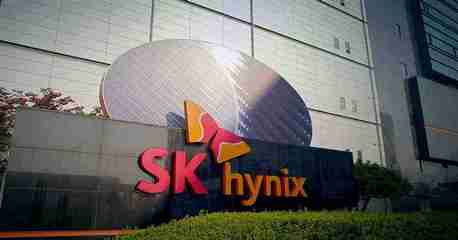
The U.S. chip industry has hit hard on foreign investment in setting up factories in China. South Korean chip giant SK Hynix admitted that the operation of the Chinese factory is subject to many restrictions. In an emergency, it may consider selling the factory and transferring the equipment to South Korea. SK Hynix, Samsung Electronics, etc. have been granted a one-year exemption by the United States, but Japanese media analysis pointed out that the purpose of Washington is not to show goodwill, but to warn them, requiring them to use the exemption period to formulate Plan B, including transferring to the United States to set up factories.
SK Hynix President Kevin Noh told the media today (26th) that the company has many restrictions in its Wuxi plant near Shanghai. Although it was licensed earlier this month, it can still use American technology to continue producing advanced memory chips in China in the next year. He is not sure if it will be extended after the deadline. "As a contingency plan, we are considering selling the (China) chip factory, selling the equipment or transferring it to South Korea."
He also mentioned that this is only a contingency plan, and the company still hopes to continue operating without facing this situation.
SK Hynix is the world's second largest DRAM memory chip manufacturer, with a market share of nearly 30%, of which about 40% of its output comes from its Wuxi factory.
Nikkei Asian analysis pointed out that after the US Department of Commerce granted an exemption license, K Hynix and Samsung Electronics began to evaluate the business risks of operating in China and plan for different situations. Kim Yang-paeng, a researcher at the South Korea Institute of Industrial Economics and Trade, pointed out that the signal from the United States is that these manufacturers must withdraw from China and set up factories in the United States. He believes that Samsung and SK Hynix have little ability to refuse in this matter.

